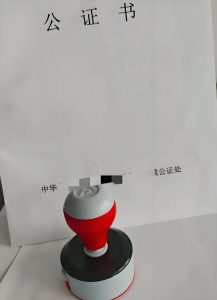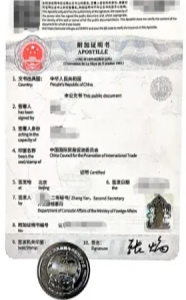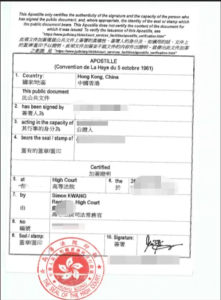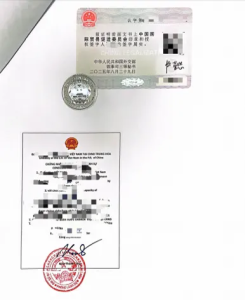“I signed a contract in China, but it needs to be used in Vietnam, Singapore, and Egypt. How do I get it recognized?”
“I’ve heard about both Hague Apostille and Consular Legalization. Which one should I choose?”
For many businesses (or individuals) planning to “go global,” using contracts, business licenses, authorizations, certificates of origin, and other documents across borders is a common requirement. However, for these documents to be accepted in the target country, some form of international certification is necessary. In this field, ‘Apostille’ and “Consular Legalization/Legalization” are the two primary pathways.
Which route should you take for your target country, and what’s the most reliable approach? Today, let’s delve into the details.

I. Apostille vs. Consular Legalization:
What’s the Difference?
Many business owners initially struggle to distinguish between “Apostille” and “Consular Legalization.” In reality, both serve the identical purpose: ensuring documents issued in China are recognized and usable overseas. The key differences lie in “applicable countries” and “process complexity.”
If the destination country is a member of the Hague Convention—such as Indonesia, Singapore, the Philippines, or Hong Kong, China—then use the “Apostille” (Hague Authentication). This streamlined process requires only one step: obtaining the Apostille stamp from the Ministry of Foreign Affairs or Foreign Affairs Office. The document can then be used directly in the destination country without further embassy procedures.
However, if the destination country is not a Hague member—such as Vietnam, Thailand, or Egypt—then “consular legalization,” commonly known as “dual legalization,” is required. This means that after completing domestic notarization and Ministry of Foreign Affairs certification, the documents must be submitted to the target country’s embassy in China for a second certification. In other words, compared to the Apostille, consular legalization adds an extra “cross-border endorsement,” making the process more cumbersome and time-consuming.
To summarize simply: Check whether the target country is a member of the Hague Convention. If yes, proceed with Hague Apostille; if no, diligently follow the double certification process of consular legalization.

Source: Internet, for illustrative purposes only
1. Scenario Assessment
If you need to use Chinese business licenses or contracts in countries like Singapore, Indonesia, the Philippines, South Korea, Japan, the UK, or Australia—all of which are Hague Convention signatories (or have joined the Convention)—you can prioritize the Hague Apostille route (provided the domestic Chinese process is complete).
If documents are intended for use in non-Convention countries like Vietnam, Thailand, Egypt, UAE, or Russia, the consular legalization process (i.e., “dual legalization” or “triple legalization”) is mandatory.
Important Note: Effective November 7, 2023, China formally joined the Hague Convention, ushering in a major transformation in China’s cross-border authentication policies for documents.
Following China’s accession to the Hague Convention, official documents, certificates, contracts, and other materials issued in China require only an Apostille stamp within China for use in other Hague member states. They no longer need to be authenticated by Chinese embassies or consulates abroad.
2. However, two points require attention:
Although the overall process has been simplified following China’s accession, not all destination countries or document types automatically qualify (some countries or institutions have yet to update their internal regulations).
For non-Hague countries, the consular authentication route remains necessary.

II. Detailed Explanation of Apostille Certification:
How to obtain it in China/other countries?
1. What is Apostille certification/Certificate of Authentication?
Apostille certification (often translated in Chinese as “Supplementary Certificate” or “Hague Seal”) is an internationally recognized authentication method. Under the Convention Abolishing the Requirement of Legalization for Foreign Public Documents (Hague Convention), documents from any signatory country bearing an Apostille are accepted by other contracting states without requiring additional authentication from the Ministry of Foreign Affairs or consulates.
In layman’s terms: An Apostille is a “stamp of endorsement” certifying that the document is genuine, the notarization is authentic, and the signatures are valid.

Source: Internet, for illustrative purposes only
2. Process and Considerations for Obtaining an Apostille in China
In China, the process for obtaining an Apostille (i.e., domestic authorities affixing an Apostille to Chinese documents) has undergone significant changes in recent years since China joined the Hague Convention.
The process is broadly as follows:
① Notarization by a Notary Public/Notary Authority
The original documents you intend to use (e.g., business licenses, articles of association, contracts, letters of authorization) must first be notarized by a Chinese notary authority. This certifies their authenticity, the signatory’s identity, and the legitimacy of the seals or signatures.
Notary offices typically require you to provide the original documents, copies, and proof of identity.
② Affixing the Apostille certification seal
Under China’s new policy, the Apostille seal (Apostille seal/Certificate of Authentication) is affixed by the Ministry of Foreign Affairs or its authorized local foreign affairs offices / the Consular Department of the Ministry of Foreign Affairs / authorized local foreign affairs offices.
Some authorized local foreign affairs offices (FAOs) can directly affix the seal without submitting documents to Beijing, reducing turnaround time.
Official websites typically list authorized local foreign affairs offices for Apostille certification.
③ Collecting/Shipping Documents
Certified documents can be collected in person or returned via mail/courier.
Authenticity verification is often possible locally (e.g., online number validation, QR code scanning). Processing Time & Fees
In mainland China, most Apostille applications are processed within 2–4 business days (excluding mailing time).
If a local foreign affairs office lacks Apostille issuance authority, processing may be centralized through another agency, extending the timeframe.
Fees vary slightly by location.
Online verification systems exist; Chinese supplementary certificates can be verified digitally. Sample Document Checklist (Hague Apostille within China)
Original document requiring certification;
Notarized certificate (issued by a notary office with seal and signature);
Applicant’s identification (ID card, passport, business license, etc.);
If the document is not in Chinese or as required by the destination country, include a certified translation (stamped or signed by a licensed translation agency);
Other supplementary materials (e.g., identification of original signatory, board resolution, certified copy of signed pages);
④ Language Requirements/Translation
Typically requires an English translation or one in a language recognized by the destination country (e.g., Indonesian/English for use in Indonesia).
Translations must be prepared by a certified translation agency and bear an official translation seal or signature.
Note: The Hague Convention only authenticates “public documents/official documents/notarized documents,” excluding diplomatic correspondence, documents issued by embassies/consulates, customs documents, etc. Documents with special content may be excluded.
Validity and Expiration:
The Hague Apostille itself generally has no uniform “expiration date” restriction. However, if the document content (contract terms, legal entities, addresses, signatures, etc.) changes, the previous Apostille becomes invalid and must be re-authenticated.
If the destination country or receiving institution has specific requirements (e.g., certain certificates are only valid for 3 months), re-authentication must be performed according to their stipulations.
3. Process for Obtaining an Apostille in Other Countries (Using the United States as an Example)
Suppose you execute a contract in the United States and need to bring it to China or a third country for use.
First, have the document authenticated at the local state/Secretary of State office or the responsible local authority to affix the “State Apostille Seal.”
The United States is a prime example of a Hague Convention member state. Once a document bears the Secretary of State’s Apostille, it is generally acceptable for use in China or other Hague member countries without requiring additional consular legalization from Chinese embassies or consulates in the U.S. (Since China joined the Hague Convention, U.S. documents entering China only require an Apostille).
If the destination country is not a Hague member state, additional consular legalization may be required (if the target country is not listed as a convention member).

III. Detailed Explanation of Consular Legalization
Consular Legalization / Legalisation
When the destination country is not a Hague Convention signatory, the “traditional method”—consular legalization—is required. This process is also known as consular authentication, consular legalization, or double certification (referred to in China as “double certification”: Ministry of Foreign Affairs + destination country embassy).
1. Overview and Applicable Scenarios
The consular legalization process is lengthy, involving multiple steps, and constitutes the “traditional authentication pathway.” Its core function is for the embassy or consulate of the destination country to endorse the document, confirming its authenticity and validity as certified by Chinese authorities.
Most non-Hague member states (e.g., Vietnam, Thailand, Egypt, UAE, certain African nations) require this method.
2. Consular Legalization Process in China
Taking Chinese enterprises needing documents for use in Vietnam or Egypt as an example, the typical steps are as follows (some countries may require three steps or additional procedures):
① Notarization
Similar to the Hague route, documents first undergo notarization by a notary public (verifying authenticity, signatory identity, seal legitimacy, etc.).
Translated documents (if required) must also be legally certified.
② Ministry of Foreign Affairs (MOFA)/MOFA-Authorized Foreign Affairs Office (FAO) Authentication
After notarization, the document undergoes further authentication by China’s Ministry of Foreign Affairs (MFA) or local Foreign Affairs Office (FAO) to verify the authenticity of the notary authority’s seal.
This step is completed within China.
③ Embassy/Consulate Authentication in China
The notarized and MFA-authenticated document is submitted to the target country’s embassy, consulate, or designated consular office in China for affixing the embassy authentication seal/signature.
Embassies may impose additional requirements (e.g., format, language, notarized translations, purpose statements, invitation letters from foreign entities).
Some embassies require appointments, document mailing, or in-person submission.
③ Collection/Return Mailing
After consular authentication, documents can be collected in person or mailed by the embassy to the applicant.
3. Time, Cost & Case Comparison
When it comes to document certification, businesses primarily care about two things: How long does it take? How much does it cost?
If the destination country is a member of the Hague Convention, the process is Apostille certification, which is relatively efficient.
Taking mainland China as an example, it typically takes around 10 working days to complete. If processed through Hong Kong, China, it also requires involvement from an international notary public, a notary, and the Hong Kong High Court, taking approximately 15 working days. Overall, Apostille certification offers predictable timelines and lower costs.

Source: Internet, for illustrative purposes only
Consular legalization, however, is less straightforward. Adding an extra step—confirmation by the embassy in China—inevitably extends the timeline. For instance, Egypt typically requires around 25 business days, while Vietnam is faster at approximately 15 business days. The added “cross-border endorsement” also makes it more expensive than Hague Apostille.
Consider a real-world example: A Chinese company setting up a representative office in Indonesia only needs Hague Apostille, which can be completed in about two weeks. But if the same company establishes a branch in Vietnam, it requires consular legalization, extending the entire process to at least three weeks or longer. For businesses facing imminent contracts and tight deadlines, this time difference translates into tangible costs.
In short: Hague Apostille is faster and more cost-effective; consular legalization is slower and more expensive. When planning overseas expansion timelines, companies must factor in certification lead times and budgets to avoid bottlenecks at critical junctures.

IV. Commonly Certified Commercial/Overseas Documents
+ Language & Translation Requirements
1. Commonly Certified Document Types
Documents frequently requiring Hague or consular legalization in international business operations include:
Company registration/business license, articles of association;
Commercial contracts/agreements;
Authorization letters/power of attorney/statements;
Credit references/bank statements/asset proofs/guarantee letters;
Trademark registrations/patent documents;
Import/export documents: certificates of origin, customs declarations, inspection certificates;
Product quality certifications/reports issued by certification bodies;
Documents listed above typically require international authentication for use overseas.
2. Language/Translation Requirements
Hague Authentication: While the authentication process itself imposes no strict language restrictions, the target country often requires accompanying English or target-language translations (commonly English, French, Indonesian, Korean, Arabic, etc.).
Consular Legalization: The legalized document must fully comply with the target country’s language requirements. Some embassies only accept translations in the target country’s language or official language (and require notarized translations).
Translations must be completed by a qualified translation agency and bear the agency’s official translation seal, signature, or certified translation stamp.
Some embassies also require the translation to be notarized alongside the original document as a “side-by-side comparison” or as a notarized translation.
Example: When establishing a representative office in Indonesia, commonly required documents for certification include:
① Performance contracts;
② Audit reports;
③ Business licenses;
④ Articles of association;
⑤ LOA (Letter of Appointment for Chief Representative);
⑥ LOI (Letter of Intent from Parent Company);
⑦ LOS (Letter of Statement from Parent Company);
⑧ Factory LOA documents;
⑨ CFS (Certificate of Free Sale)…
Many of the above documents require Hague Apostille or consular authentication for use in Indonesia (depending on whether Indonesia is a Hague Convention signatory).

V. Practical Application:
Process + Case Study + Advance Planning Recommendations
1. Case Comparison A: Exporting to Hague Convention Countries (e.g., Singapore / Indonesia)
Assume your company is registered in China and plans to establish subsidiaries/submit contracts/open bank accounts in Singapore or Indonesia. To use Chinese-issued documents like Articles of Association, Business License, or Authorization Letters in Singapore or Indonesia:
① Obtain notarization in China;
② Affix the Apostille certification seal (stamped by China’s Ministry of Foreign Affairs or authorized foreign affairs offices)
③ If the target country is a Hague Convention member (e.g., Singapore, Indonesia, South Korea, France, UK, Australia), you can directly use this certified document with local government agencies, banks, courts, etc., without additional consular authentication.
This process has become simpler and faster since China joined the Hague Convention.
Note: Although the process is simplified, certain countries or authorities may still have specific acceptance criteria for certified documents. For example, contracts may require signatures from both parties during certification, a stamped page, specific translation requirements, or version specifications. Therefore, when going global, always pay attention to the “specific requirements of the target country’s authorities.”
2. Case Comparison B: Non-Hague Countries (e.g., Vietnam/Egypt)
For documents like business licenses or contracts intended for use in Vietnam or Egypt, Hague Apostille alone is insufficient. Consular legalization is required:
– Notarization in China;
– Legalization by China’s Ministry of Foreign Affairs/Foreign Affairs Office;
Authentication by the Embassy of Vietnam in China/Embassy of Egypt in China;
Only documents bearing the embassy seal can be used with Vietnamese/Egyptian authorities;
This process is significantly slower and involves far more steps than Hague Apostille.
Special Transition Period: Mutual Authentication of Documents Between China and the US

Source: Internet, for illustrative purposes only
Effective November 7, 2023, a significant change took effect between China and the United States following China’s accession to the Hague Convention: Official documents issued by the United States for use in mainland China now only require an Apostille from the U.S. authority, eliminating the need for consular certification from either the U.S. Embassy in China or the Chinese Embassy in the United States.
This means that a document issued by a U.S. court, if properly Apostilled in the United States, can be used in China without embassy certification.
However, although this simplified policy has been announced, target reviewing authorities (such as Chinese company registration agencies, banks, educational institutions, etc.) must gradually adopt this new process. During the transition period, some authorities may still adhere to the old regulations.

VI. Frequently Asked Questions & Guidance
Below are common issues encountered by businesses/applicants during practical implementation, along with suggested answers:
1. Can I handle the certification myself?
Yes. But there are certain risks.
If you are familiar with notary procedures, foreign affairs processes, and embassy requirements, you may submit materials independently. However, many rejected applications stem from issues like incorrect formatting, missing pages, non-standard signatures, translation errors, or incomplete supporting documents. While using professional agencies or law firms incurs additional fees, it significantly increases success rates.
2. Do foreign-language documents require translation?
In most cases, documents must be translated into the target country’s language or an official language accepted by the receiving country (e.g., English, Indonesian, French, Russian, etc.).
Translations must be completed by a certified translation agency, qualified translator, or notary public, and bear an official translation seal or signature.
Some embassies additionally require “notarized translations” (i.e., notarization of the translation itself) or an additional seal of confirmation on the translated document.
3. What happens if authentication is not done?
The risks are significant. Documents may be deemed “unacceptable,” “invalid,” or “unauthenticatable” in the destination country, leading to business disruptions, contract non-execution, registration application rejections, bank refusals, and court non-recognition.
In other words, Hague Apostille / Consular Authentication is not “optional”—it is often an essential prerequisite for international transactions.
4. Can one document be used across multiple countries?
For Apostille certification: As a multilateral convention mechanism, an Apostille-certified document is generally recognized in all Hague Convention member states (provided the document type falls within the convention’s scope).
For consular certification: This is typically specific to the target country. To use it in other countries, repeated certification is required or endorsement must be obtained from the new country’s embassy.
5. Do Apostilles/Consular Legalizations expire?
Officially, Apostilles and consular legalizations themselves have no uniform expiration mechanism (i.e., the certification stamp remains valid indefinitely as long as the document remains unaltered).
However, if the document’s content changes (e.g., alterations to contract signatures, changes in corporate legal representatives, amendments to articles of association), the original certification becomes invalid and must be re-certified.
The target receiving country/institution may impose restrictions on the document’s “date of issuance/date of use” (e.g., requiring issuance within the last three months).
6. Are China/the target country listed among the Convention member states?
As of now, China has acceded to the Hague Convention (effective November 7, 2023).
Common Asian countries such as Singapore, Indonesia, South Korea, the Philippines, and Japan are Convention member states. Vietnam, Thailand, Egypt, and the UAE are non-member states.
The Ministry of Foreign Affairs of China/Consular Service website publishes the list of member states, authentication policies, and authorized agencies.

VII. Best Practices for Overseas Authentication
Practical Notes for Businesses
To streamline your cross-border business processes and control costs, here are some actionable recommendations:
1. Plan One to Two Months in Advance
The consular authentication process is particularly time-consuming; allow ample time. Each step—notarization, translation, Ministry of Foreign Affairs authentication, and embassy authentication—may involve queues or delays due to holidays.
2. Verify Requirements of Target Countries/Institutions
Some countries or institutions, even if Hague members, may still reject the Hague route for certain document types; some target authorities may insist on embassy authentication. Always confirm upfront: Does this institution accept Apostille certification, or does it require traditional consular legalization for non-Convention documents?
3. Use standardized formats & templates
Contracts must have clear signature/stamp pages with consistent word counts and pagination. Powers of attorney should follow standard formats, with translations matching the original layout. Ensure translations are neatly formatted.
4. Prepare Complete Materials with Duplicate Copies
Original documents + multiple photocopies + translations + notarized copies + application materials + supplementary documents (e.g., board resolutions, signature pages, ID proofs, company registration certificates)
5. Prioritize the Hague Route for Multiple Destination Countries
For instance, if you anticipate business in Singapore, Australia, and Indonesia, a single Hague Apostille certification can be used across multiple countries, significantly saving costs compared to obtaining consular legalization for each nation.
6. Utilize agency/legal assistance
If unfamiliar with the process, consider hiring a law firm or specialized certification agency experienced in Hague/consular authentication procedures. They typically anticipate requirements in advance, preventing time-consuming document rejections.
7. Monitor policy updates
China’s recent accession to the Hague Convention may transform document authentication pathways. Stay updated through the Ministry of Foreign Affairs, Consular Service Network, and embassy announcements.
Conclusion: Mastering These Two Authentication Pathways is Essential for Global Expansion
For every enterprise aiming to “go global,” understanding the difference between Hague Apostille and consular authentication is crucial—it’s the key to your “passport.”
If the target country is a Hague Convention member, prioritize the Hague Apostille (one-time processing, valid in multiple countries);
If the target country is not a member, consular legalization is mandatory—a time-consuming and complex process.
China’s accession to the Hague Convention has revolutionized domestic document certification for international use. However, during this transition period, different institutions and countries may still operate under their own rules.
We hope this article provides practical guidance for selecting and executing your international certification needs. For specific countries like Vietnam, Egypt, UAE, Brazil, USA, or European nations, contact your account manager for a customized workflow + document checklist.
Note: Sources include China Consular Service Network, Visa Service Center, Shanhai Map, and compiled news reports. Reproduction requires attribution; contact for removal if infringing.
